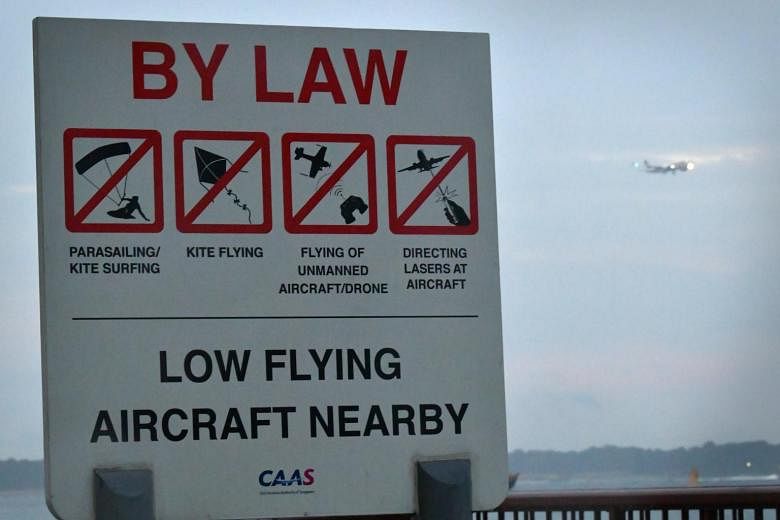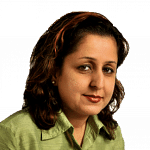SINGAPORE - All drones will have to be registered and the Government is looking to raise penalties for those who flout flying rules, as part of measures to tighten control after two illegal incursions disrupted operations at Changi Airport in June.
A licensing framework for pilots of large and more capable drones will also be introduced, said Senior Minister of State for Transport Lam Pin Min.
Drone registration - possibly before year end - will ensure that operators are made aware of their responsibilities and undertake to conduct their activities in a responsible manner, he said.
There will also be stricter enforcement actions against errant drone operators, Dr Lam said in Parliament on Monday (July 8).
There is currently a ban in Singapore on flying drones within 5km of airports or military airbases, or at altitudes above 61m, without a permit.
Those who flout the rules can be fined up to $20,000 and jailed for up to a year.
Last week, two people were charged with operating a drone close to an aerodrome, while another two cases are being prosecuted.
On Monday, a company pleaded guilty to a charge of operating a drone without a permit. The company was fined $9,000.
Dr Lam was responding to MPs who asked about the unauthorised drone activity that led to 55 flight delays and eight diversions over two nights on June 18 and 24.
Police investigations are ongoing, he said.
"We have learnt from the experiences of other airports that identifying the perpetrators can be challenging and will take time," Dr Lam added.
"Meanwhile, our priority is to detect the drones promptly and prevent them from affecting air traffic and endangering public safety. We have taken a multi-agency approach and deployed national resources towards ensuring the safety of Changi Airport operations."
Capabilities to counter drones have been strengthened at the airport as well.
"We stand ready to invest in and deploy additional capabilities to monitor and enforce the safety of our airspace," said Dr Lam.
Picking up drone activities can be challenging, especially when intentions are malicious, he stressed.
Responding to Workers' Party Non-Constituency MP Dennis Tan, who asked about geofencing technology at the airport, Dr Lam said that while such solutions can keep drones out of restricted areas, there are limitations.
For the technology to work, a drone must first be fitted with the necessary software that uses the global positioning system (GPS) and other navigational satellite signals to automatically help prevent it from flying near sensitive locations.
In the latest drone case at Changi Airport, Dr Lam said the Government assessed that this capability was disabled, so a geofencing solution would not have been able to to prevent an intrusion by the drone.
Similarly, a proposed central flight management system that can monitor drones islandwide and allow the authorities to check if they are operating under valid permits, works only for cooperative operators.
To deal with perpetrators, a "risk-stratified approach" is required so that priority is given to sensitive areas, for example, near the airport, he said.
The recent drone incidents are the first confirmed intrusions into Changi Airport, he said.
Although the impact was moderate, such disruptions can have a severe impact on airport operations, he said.
At Gatwick Airport near London last year, drone intrusions shut down the entire airport for three days, affecting about 1,000 flights.
Even as the intrusions at Changi have caused some to suggest that Singapore should ban the use of drones, there are many beneficial uses of drones, Dr Lam pointed out.
Besides commercial applications such as drone deliveries and inspections, there are also many recreational users in Singapore.
Schools and institutions of higher learning also use drones to teach science, technology, engineering and mathematics (Stem), including robotics and programming.
Dr Lam said: "It is therefore important that we continue to take a balanced approach."
He stressed that by and large, the community of drone enthusiasts fly their drones responsibly and are sensitive to the needs and concerns of other users that they share public space with in Singapore's crowded urban environment.
As with other forms of new technology, finding the right balance in terms of regulations will take time, particularly since drone technology continues to evolve quickly, Dr Lam said.
This is why the Civil Aviation Authority of Singapore established the UAS (Unmanned Aircraft Systems) Advisory Panel earlier this year to help review and recommend enhancements to the regulatory framework, he said.


